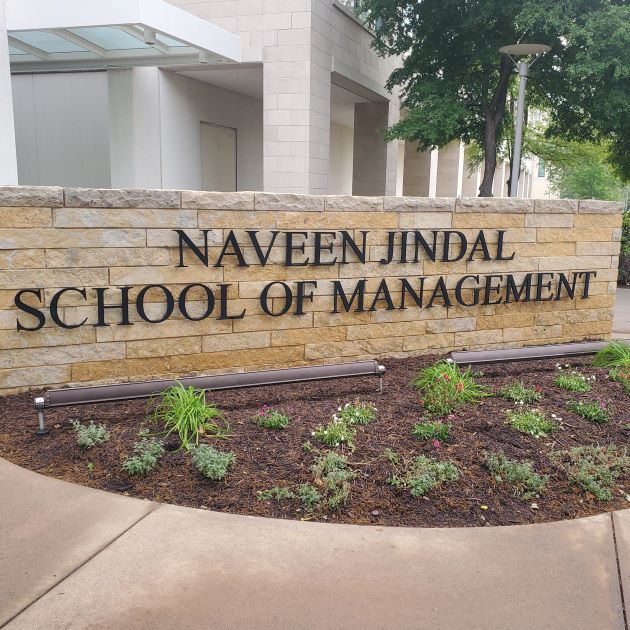
Research conducted by Naveen Jindal School of Management faculty members has inspired a change in the U.S. Department of Labor’s nationwide overtime rules that will benefit about 4.3 million U.S. workers.
The study, “Too Many Managers: The Strategic Use of Titles to Avoid Overtime Payments,” was conducted by Dr. Umit Gurun, Stan Liebowitz Professor in the Jindal School’s Accounting Area; Dr. Bugra Ozel, an associate professor in the Jindal School’s Accounting Area; and Harvard Business School professor of finance Dr. Lauren Cohen. It was published online by the National Bureau of Economic Research in January 2023.
The new rule will increase the overtime threshold for non-exempt workers to $43,888 from $35,568 on July 1. The threshold will increase again, to $58,656, on Jan. 1, 2025. That means that most salaried workers who earn less than $844 per week will become eligible for overtime pay under the new rule. And on Jan. 1, 2025, most salaried workers who make less than $1,128 per week will become eligible for overtime pay.
After that time, the overtime threshold will be updated every three years based on the latest wage data. The threshold will also be adjusted for highly compensated workers. The rule will also increase the total annual compensation requirement for highly compensated employees (who are not entitled to overtime pay under the Fair Labor Standards Act if certain requirements are met) from $107,432 per year to $132,964 per year on July 1, 2024, and then set it equal to $151,164 per year on Jan. 1, 2025.

“Our paper illuminates a troubling reality: corporations evade overtime pay and leave countless hardworking individuals shortchanged,” Ozel said. “This practice undermines the very essence of fairness in the workplace.”
Several media outlets, including Time magazine and the New York Times, have published articles about the research.

“Our findings attracted the attention of some U.S. Senators and Representatives after the article appeared in the New York Times,” Gurun said. “Things began to move quickly after that.”
The paper was quoted through a November 2023 letter from Julie Su, acting secretary of the Department of Labor, and signed by several U.S. Senators in support of the overtime change.
“This rule will restore the promise to workers that if you work more than 40 hours in a week, you should be paid more for that time,” Su said. “Too often, lower-paid salaried workers are doing the same job as their hourly counterparts but are spending more time away from their families for no additional pay. That is unacceptable… This rule establishes clear, predictable guidance for employers on how to pay employees for overtime hours and provides more economic security to the millions of people working long hours without overtime pay.”
According to the letter, the department conducted extensive discussions with employers, workers, unions, and other stakeholders before issuing its proposed rule in September 2023, and considered more than 33,000 comments in developing its final rule.
One impetus for the research project was a particularly large increase in “managers as a percentage of all employees economy-wide in recent decades,” Gurun said.
Under federal laws, firms are allowed to not pay overtime to employees who perform managerial tasks and receive a fixed salary above a specified threshold. Given that job titles are generally assumed to reflect duties, companies may manipulate these titles to create the impression that an employee is engaged in managerial work.
According to data from the Bureau of Labor Statistics (BLS), the number of employees in all occupations, excluding management, from 2010-2021 grew by about 9%. Over the same time period, the number of managers increased by more than 47%.
Researchers have analyzed millions of job postings and found a significant spike in managerial titles just above the federal salary threshold that exempts employees from overtime pay, suggesting a possible strategy by employers to avoid paying overtime.
“We were taken aback by the prevalence of this practice; many of these positions appear to be little more than glorified service person roles,” Ozel said. “There are many odd titles like ‘coffee cart manager’ at a hotel, ‘carpet shampoo managers’ for carpet cleaners, and ‘grooming manager’ for barbers just above the federal salary threshold and few just below it.”
Certain industries were the biggest violators, including retail, restaurants, and hospitality, although the practice stretched across all business sectors of the economy, according to their research study.
The researchers estimate that companies save $4 billion in overtime expenses by using what they call inflated titles. The practice causes 13.5% less pay than workers would otherwise earn. Fines for violating the rule are comparably low.
Other significant findings included the fact that the practice appears to be more prevalent in companies that hold stronger bargaining power and have employees with weaker rights. The study also found that firms with financial constraints and fewer local labor options tend to avoid overtime more often, which may compel them to reduce costs by not paying overtime.
Finally, the study found that overtime avoidance is more common in low-wage industries that are punished more frequently for overtime infringements.
Those findings emphasize the need to understand the factors contributing to overtime avoidance and the importance of implementing policies and regulations that support fair and equitable working conditions.
“People should be paid for the work they do, not the title they are called by,” Gurun said. “We are incredibly gratified that our research played a role in pushing this historic policy change that aims to provide fair compensation for millions of low-wage workers.”





